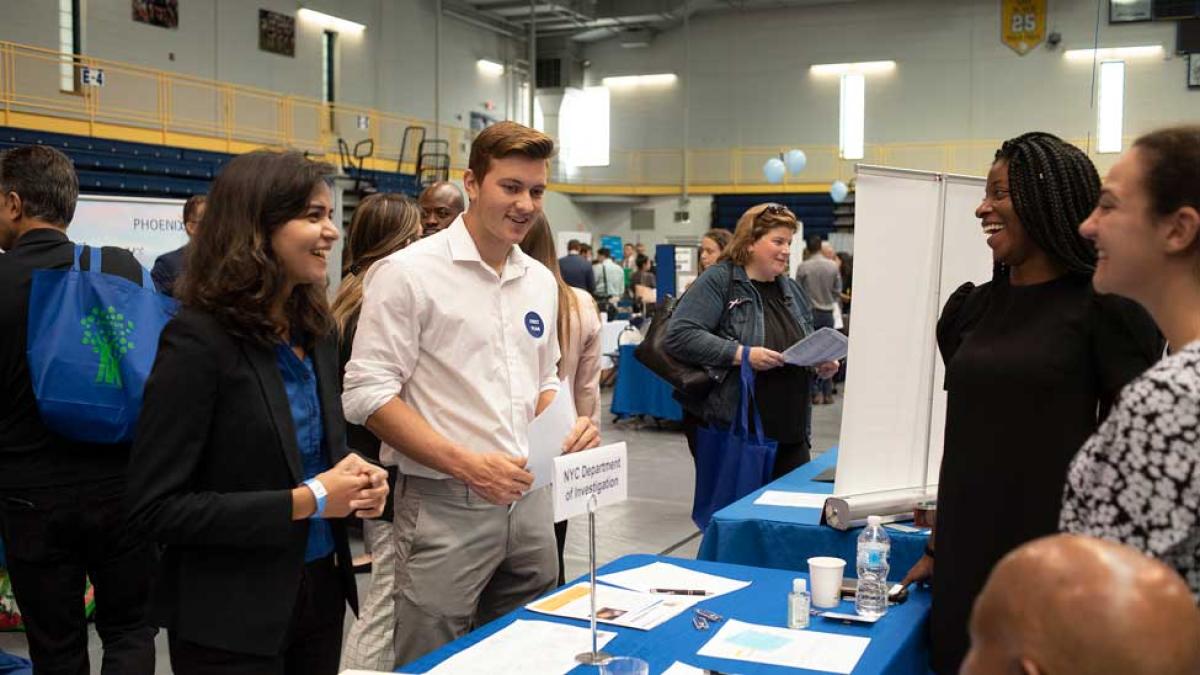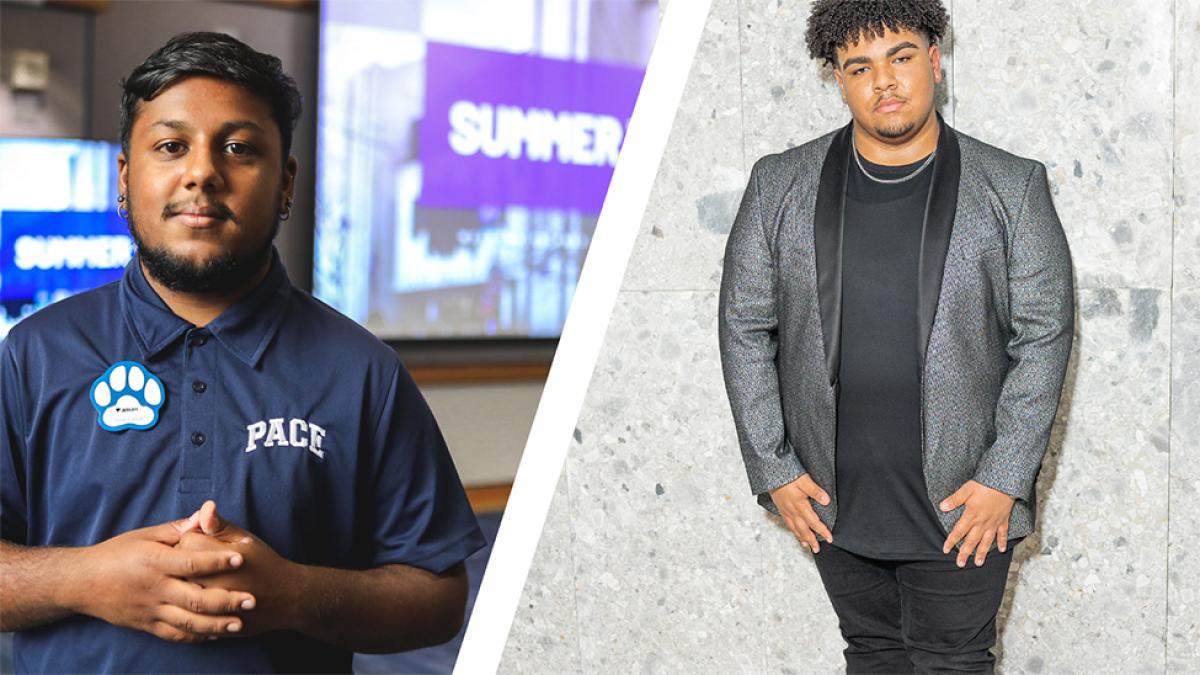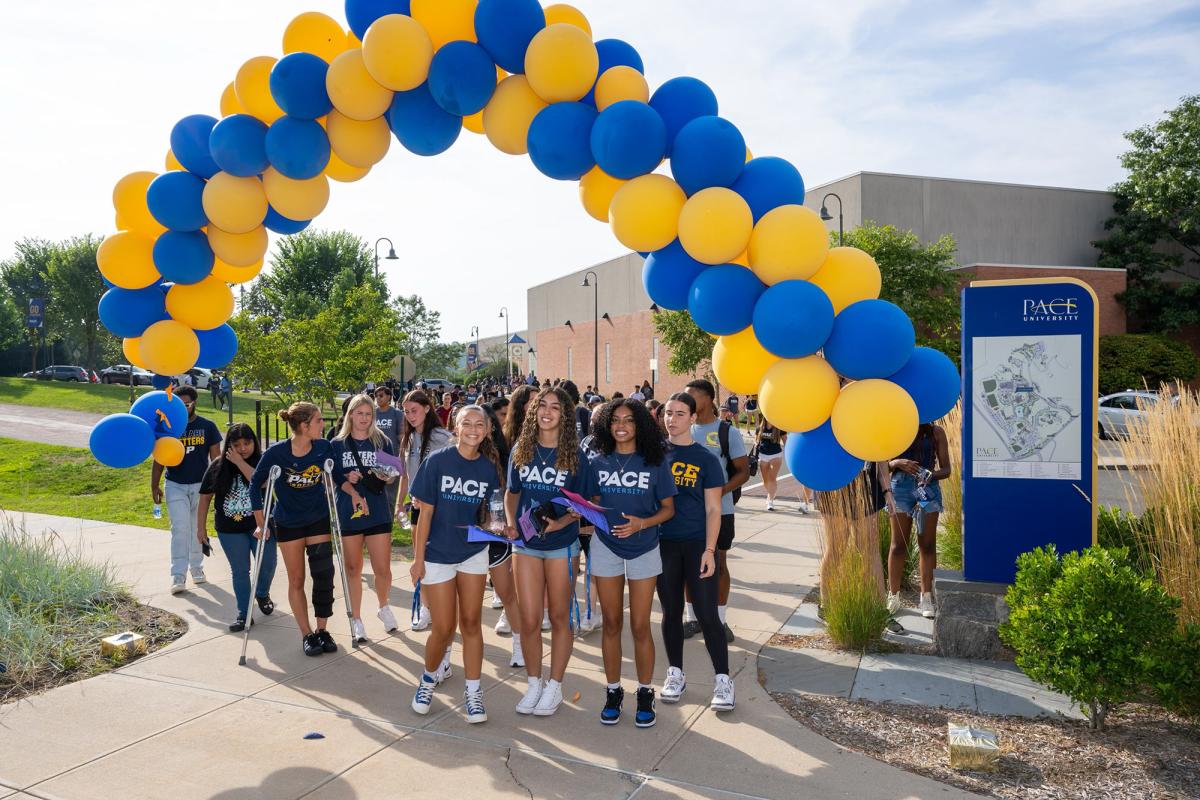
Have China’s Christians Peaked? Pew Researches the Data Debate
Joseph Tse-Hei Lee, director of the Global Asia Institute at Pace University: The findings indicate a rich and lively religious life, both formal and informal, in today’s Chinese society. Even though Christianity (Catholicism and Protestantism) remains a minority experience, its social and cultural influence is disproportionate to its small membership in the overall population. It is heartening to learn that at least before COVID, “the number of people with some connection to Christian faith is greater than zongjiao measures reveal.”
"A Very Clever Strategy": Georgia Lawyers Explain Speedy Trial Request Could Spell "Chaos" For Trump
But courts are also "extremely reluctant" to sever defendants from joint trials, pointed out Bennett Gershman, a former New York prosecutor and law professor at Pace University. "It puts prosecutors at a disadvantage in having to reuse evidence and witnesses, and gives defendants who will be tried in the future a preview of the prosecutor's case," Gershman said.
Stephanie Akunvabey Named Pace’s Chief Diversity Officer
Stephanie Akunvabey, a native New Yorker who has dedicated her career in higher education to championing issues relating to equity and inclusion, has been named Pace University’s new associate vice president for diversity and inclusion and its chief diversity officer.
Post-Mortem on The Police Raid of a Kansas Newspaper
Professor Bennett Gershman pens an op-ed in the New York Law Journal about the post-mortem on the police raid of a Kansas newspaper.
Countering China's Use of Information Laundering Via Minds and Media
Pace University Associate Professor of Communication and Media Studies Adam Klein pioneered the concept of information laundering.[9] Samantha Korta, a researcher from the Naval Postgraduate School, expanded Klein’s model to encompass all counterfeit narratives, including disinformation (deliberately false information) and malinformation (true information deliberately contorted by context and presentation to be misleading).
Entrevista Com David N. Cassuto
Haub Professor David Cassuto was featured in an interview with Jus Animalis, the largest Brazilian legal portal dedicated to Animal Law. (In Portuguese and English)
Ambassadors from Finland and Sweden to Receive 2023 Elisabeth Haub Award for Environmental Law and Diplomacy for their Groundbreaking Work to Protect the Environment in Times of Armed Conflict
The Elisabeth Haub School of Law at Pace University is pleased to announce that the 2023 Elisabeth Haub Award for Environmental Law and Diplomacy will be jointly awarded to Ambassador Marja Lehto of Finland and former Ambassador Marie Jacobsson of Sweden for their pivotal roles advancing environmental law and policy to protect the environment in times of armed conflicts.
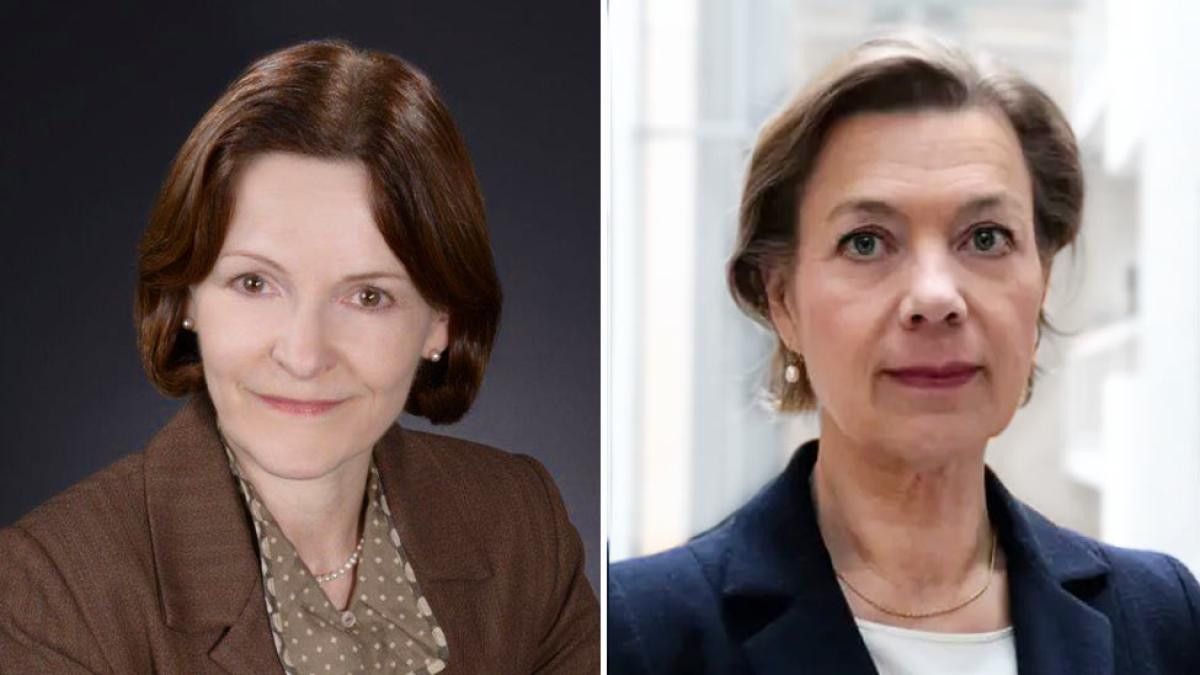
The Elisabeth Haub School of Law at Pace University is pleased to announce that the 2023 Elisabeth Haub Award for Environmental Law and Diplomacy will be jointly awarded to Ambassador Marja Lehto of Finland and former Ambassador Marie Jacobsson of Sweden for their pivotal roles advancing environmental law and policy to protect the environment in times of armed conflicts.
Ambassador Lehto is Senior Expert on Public International Law for the Ministry for Foreign Affairs of Finland and, until recently, Ambassador Jacobsson served as Principal Legal Adviser on International Law, Ministry for Foreign Affairs of Sweden. While Members of the UN International Law Commission (ILC), both served successively as Special Rapporteur for the topic of the “Protection of the Environment in Relation to Armed Conflict.” In this role they worked tirelessly for a decade to develop the Draft Principles of International Law to Protect the Environment in Times of Armed Conflicts (PDF) and then skillfully led the adoption of the draft principles by the ILC and their acceptance by the United Nations General Assembly in 2022.
The principles lay out the urgent need and common objectives to reinforce and advance the conservation, restoration and sustainable use of the environment for present and future generations, specifically with respect to the protection of the environment before, during or after an armed conflict, including in situations of occupation. Remarkably, over the years, more than 60 States engaged with the topic, offering support and observations as did international governmental and Non-Governmental organizations.
“We are honored to recognize two exemplary women for their groundbreaking work and leadership developing principles that will guide and protect the future of our planet,” said Horace E. Anderson Jr., Haub Law Dean and President of the Haub Award Jury. “The Elisabeth Haub School of Law’s No. 1 ranked environmental law program is committed to advancing the rule of environmental law across the globe and to developing the skill, knowledge, commitment and passion for the cause that both Ambassador Lehto and Ambassador Jacobsson so admirably demonstrate.”
The prestigious Elisabeth Haub Award for Environmental Law and Diplomacy was established in 1997 by the Elisabeth Haub School of Law at Pace University, in cooperation with the Haub Family, to honor the legacy of Elisabeth Haub (1899–1977), a noted philanthropist and advocate for strong laws for the conservation of nature. The award was first established to commemorate the 25th anniversary of the United Nations Stockholm Conference and the 5th anniversary of the United Nations Rio de Janeiro Earth Summit and is considered the world’s most distinguished award in the field of environmental law. Chosen annually by an esteemed jury, the award recognizes the innovation, skill, and accomplishments of lawyers, diplomats, international civil servants and other advocates who work to create the world environmental order.
“Through the prestigious Elisabeth Haub Award for Environmental Law and Diplomacy we aim to recognize the tireless efforts of two bold women whose leadership, insight, and commitment are making a difference in our fight to create a more sustainable world,” said Pace University Trustee Liliane A. Haub. “The importance of protecting the natural environment and its vital resources during and after armed conflicts has becoming increasingly important, and their work will have an important impact on our humanity, especially for those whose countries are in disarray.”
“The principles respond to a long-time quest for a consolidated legal framework for the protection of the environment in armed conflicts. Their temporal scope derives from the recognition that to be effective, protection of the environment has to be continuous: before, during and after armed conflict,” said Ambassador Marja Lehto. “The conferment of the prestigious Elisabeth Haub Award to this work amplifies the message that the environment is no more a silent casualty of war.”
“The war on aggression against Ukraine has clearly demonstrated the need and complexity in managing environmental challenges in times of an armed conflict. Such challenges do not stop when a war is over. The principles clearly show that post-conflict rebuilding and repairing cannot be left to a war-torn State, but require cooperation of the international community”, added Ambassador Marie Jacobsson. “The Elisabeth Haub Award illustrates the necessity of post-conflict environmental peace-building.”
The ceremony for the 2023 Elisabeth Haub Award for Environmental Law and Diplomacy honoring Ambassador Marja Lehto and Ambassador Marie Jacobsson will take place on Monday, October 23 at 4:00 p.m. EST and be broadcast virtually.
Pace University’s Class of ’27 Encouraged to Embrace Opportunities During Convocation
With a cheer squad, acapella singers, and faculty and staff enthusiastically welcoming the incoming class, Pace University on Tuesday hosted Convocation on two of its campuses: New York City and Pleasantville in Westchester County.
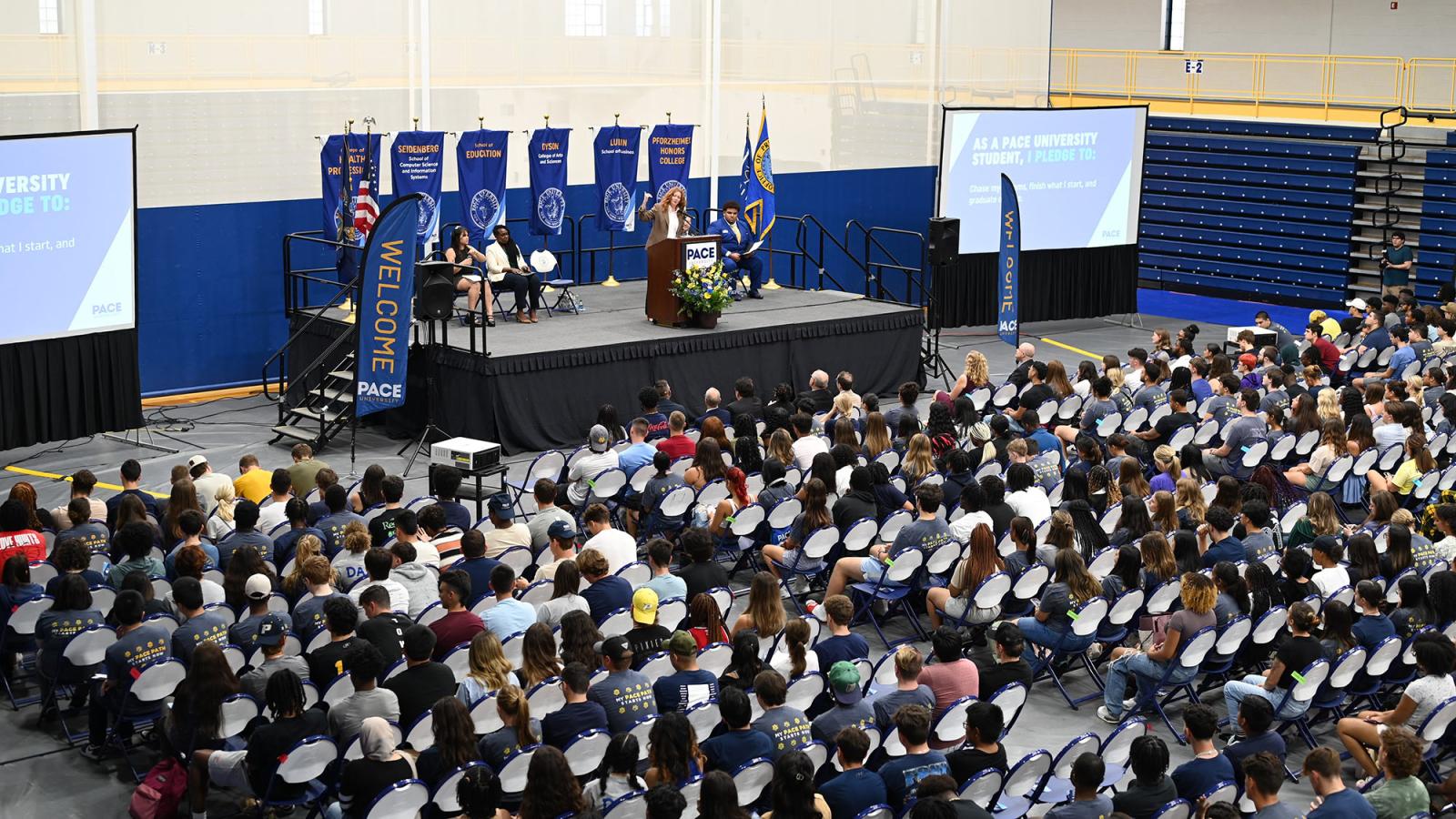
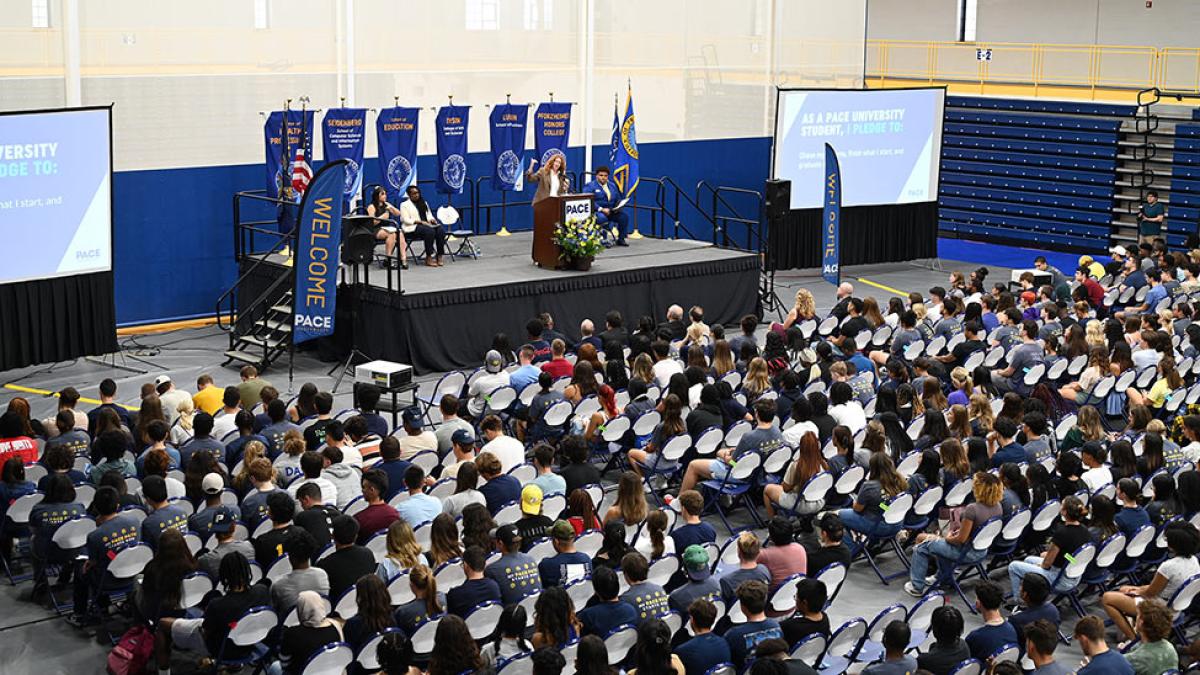
Incoming Class Represents an 8% Increase in First-Generation Student Applications
With a cheer squad, acapella singers, and faculty and staff enthusiastically welcoming the incoming class, Pace University on Tuesday hosted Convocation on two of its campuses: New York City and Pleasantville in Westchester County.
The energy and excitement on campus was evident as the Pace community celebrated the arrival of nearly 2,404 new and transfer students hailing from 48 states and 98 countries from around the world. Notably, there was an increase in first-generation students – those who are the first in their families to attend college – that coincided with an 8% increase in applications from first-generation students.
Convocation is one of the celebrated traditions for incoming students as it sets the academic tone for their years to come; it was followed by an after-party complete with games, food, a DJ, and dance music.
During the program, Pace University President Marvin Krislov, Provost Joseph R. Franco, Associate Provost for Student Success Hillary Knepper, and Chief Diversity Officer Stephanie Akunvabey provided a warm welcome to the diverse group of students in attendance.
“I am thrilled to embark on my journey at Pace University in the heart of New York City as an international student from India,” said Garima Gandhi ’27, a Biology major. “The bustling streets, diverse cultures, and endless opportunities that the city offers have always held a magnetic appeal to me. Joining Pace University is not just about pursuing an education, it's about immersing myself in a global community, where I can learn and make lifelong connections.”
President Krislov spoke to students about how it is incumbent to understand the real gift is learning and education, and the wonderful opportunities Pace provides to confront new ideas and engage with them.
“As you start your Pace career, I want you to always remember how many opportunities there are all around you,” President Krislov said in his remarks to students. “I want you to try new things. Join new student organizations. Meet new people. Give yourselves reasons to go out, to explore, to pause Netflix and shut your laptops. That is all part of your Pace Path.”
NYC Student Government President Aman Islam encouraged the incoming class to get involved and seize every opportunity available to them as Pace’s respective classrooms extend far beyond campus.
“Go to a march, get involved in your new community, sit in on a city council meeting, ask questions to your local leaders, explain your opinion, and listen to others,” Islam said, encouraging incoming students to get involved in advocacy. “Remember that people our age sparked some of the biggest changes in the world through protest, voting, and hard choices…what will the legacy of our generation be? I am constantly trying show people around me how important it is to be an advocate for yourself and others.”
Pleasantville’s Student Government President Nicholas Diaz spoke to students about the importance of having a supportive community when confronted with life’s challenges.
"In only the year that I have been at Pace, I have seen how close of a unit the Pace community is and how we thrive off support,” he said. “As I talk about support and encouragement, I remember a time where that’s all I needed. On January 6, 2023, my grandmother lost her battle against cancer and my whole world had come crashing down. With the semester about to commence in the next 2 weeks, I contemplated taking a semester off because I felt that there was no way I could do it without her. I received so much love and support from my professors and peers and even students I had not known at the time. That’s the moment I realized Pace was more than just a school, but we were a family.”

About Pace University
Since 1906, Pace University has been transforming the lives of its diverse students—academically, professionally, and socioeconomically. With campuses in New York City and Westchester County, Pace offers bachelor, master, and doctoral degree programs to 13,600 students in its College of Health Professions, Dyson College of Arts and Sciences, Elisabeth Haub School of Law, Lubin School of Business, School of Education, and Seidenberg School of Computer Science and Information Systems.
September 2023: A Message from President Krislov
September is here again and we're looking forward as our campuses and community transform! From lacrosse games and welcome parties, to BBQs and new buildings, we’re kicking off the new academic year in Pace style.
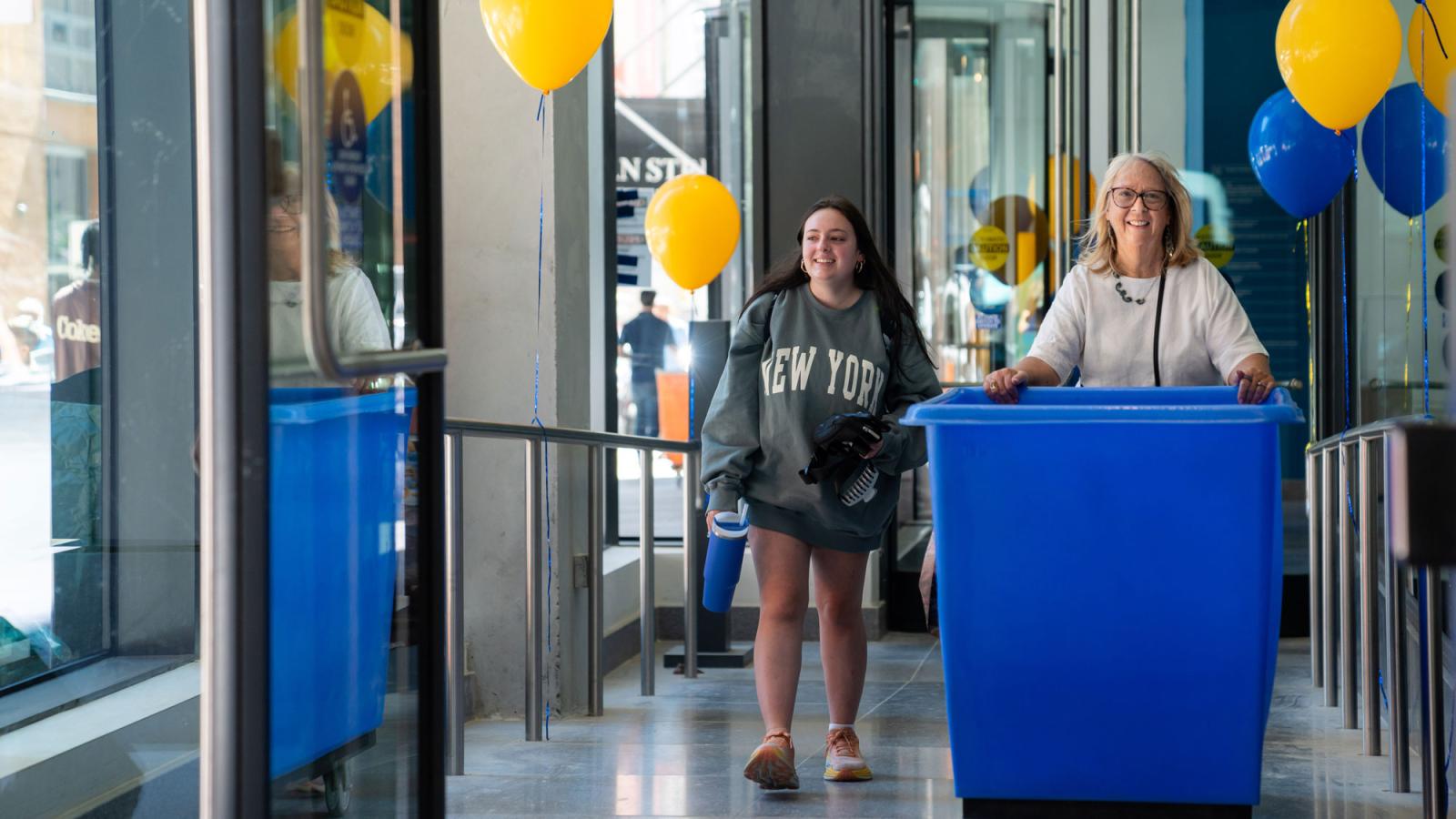
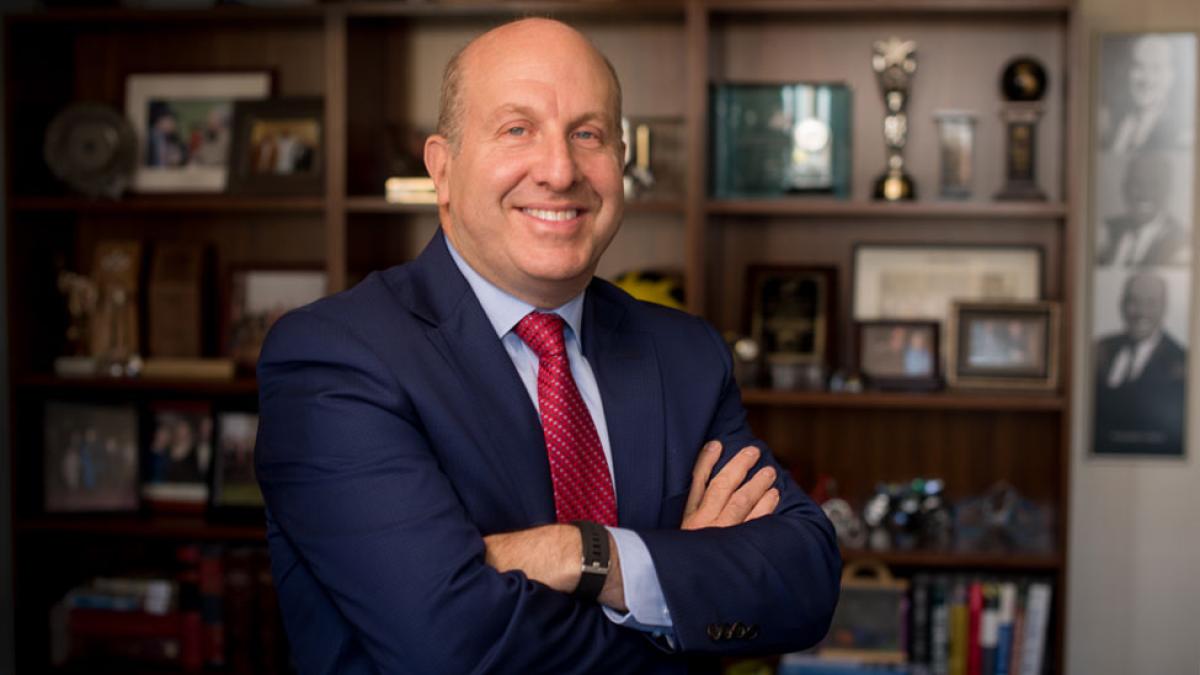
Welcome to the new academic year at Pace University, and welcome to the start of our exciting future.
There are big changes at all three of our campuses, starting with our physical plant. At the Elisabeth Haub School of Law, we spent the summer completing some much-needed infrastructure and security improvements. On the Pleasantville Campus, we opened new lab spaces for Dyson College and the Seidenberg School that will keep our students on the cutting edge of important and growing fields like environmental science and cybersecurity. And of course, in New York City we opened our brand-new 26-story campus center at 15 Beekman, which includes a new residence hall, new common spaces and gathering spaces, modern new dining facilities and a modern new library, and a dedicated new home for the Seidenberg School—plus, I must say, some truly stunning views over Manhattan, Brooklyn, and New York Harbor.
I enjoyed welcoming our incoming first-year and transfer students at Convocation ceremonies in New York City and Pleasantville yesterday, and I’m looking forward to connecting with many more of you at events scheduled over the next few weeks. For new students, I’ll be popping into Weeks of Welcome events as often as my schedule permits.
I hope to see all of you—students, faculty, and staff—at the Back-to-School welcome events that Provost Joe Franco and I will be hosting on September 12 in Pleasantville and >September 13 in NYC. I’ll be joining the Dean’s Welcome Back BBQ at Haub Law tomorrow afternoon. And I can’t wait to cheer for our Pace Setters football team, and during halftime celebrate our national champion women’s lacrosse team, at our home opener in Pleasantville this Saturday. If you’re able to see it, on Saturday night, September 9, the Governor Mario M. Cuomo Bridge in Westchester will be illuminated in Pace blue and gold to celebrate our women’s lacrosse champions.
Finally, mark your calendars for the official ribbon-cutting for 15 Beekman on October 11. And maybe if you have a chance, say a quick goodbye to the east side of One Pace Plaza. Demolition work for the renovation starts any day—and the architects’ latest conceptual plans (PDF) for the new public spaces (there will also be a transformed residence hall in the tower) look fantastic.
It’s going to be a great year.
More from Pace
With Career Fairs coming up on each campus, now's the time make sure you make the most out of this golden opportunity. Read more to learn how to set yourself up for success at a Pace Career Fair.
Want to host an event during Pace’s fourth annual Social Justice Week? Apply by Tuesday, September 26. Read the article to learn more about the origins of Social Justice Week and how to get involved.
Get to know the new presidents of the Student Government Associations on campus, Aman Islam ’24 and Nicholas Diaz ’26, as they introduce themselves and outline their hopes for the upcoming year.
A Force in Forensics: Q+A with Joe Treviño ‘15
Hispanic American and first-generation student Joe Treviño looks into the future to advance data and science in law enforcement as part of the prestigious LEADS scholar program.
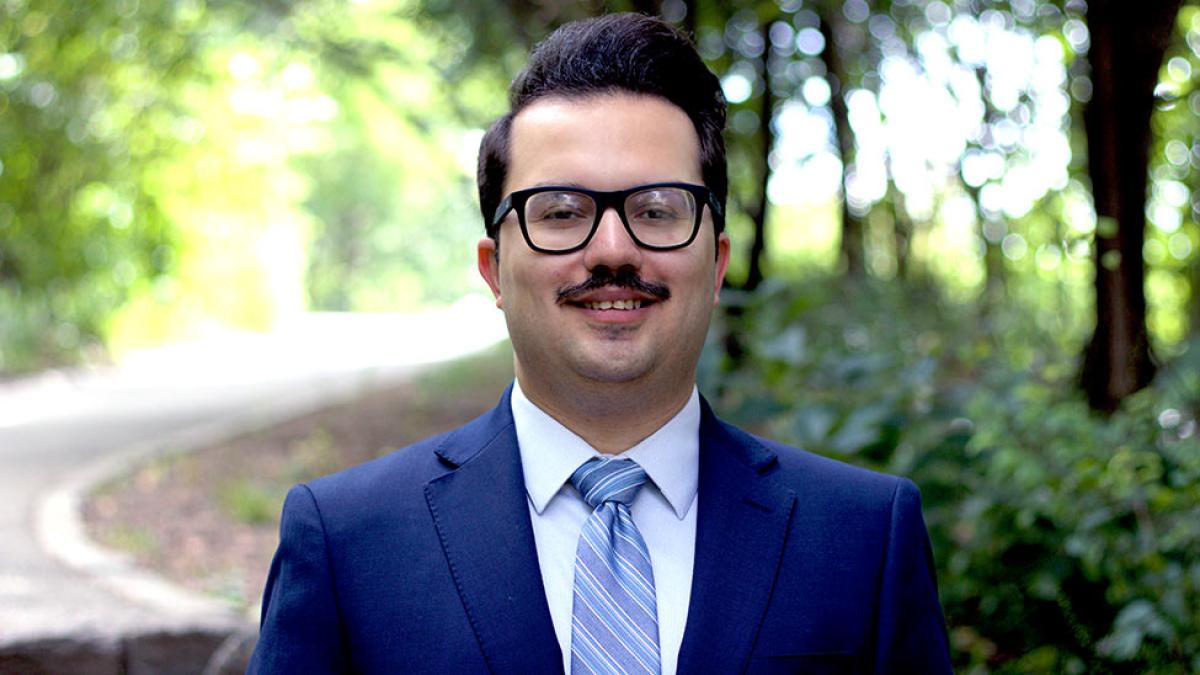
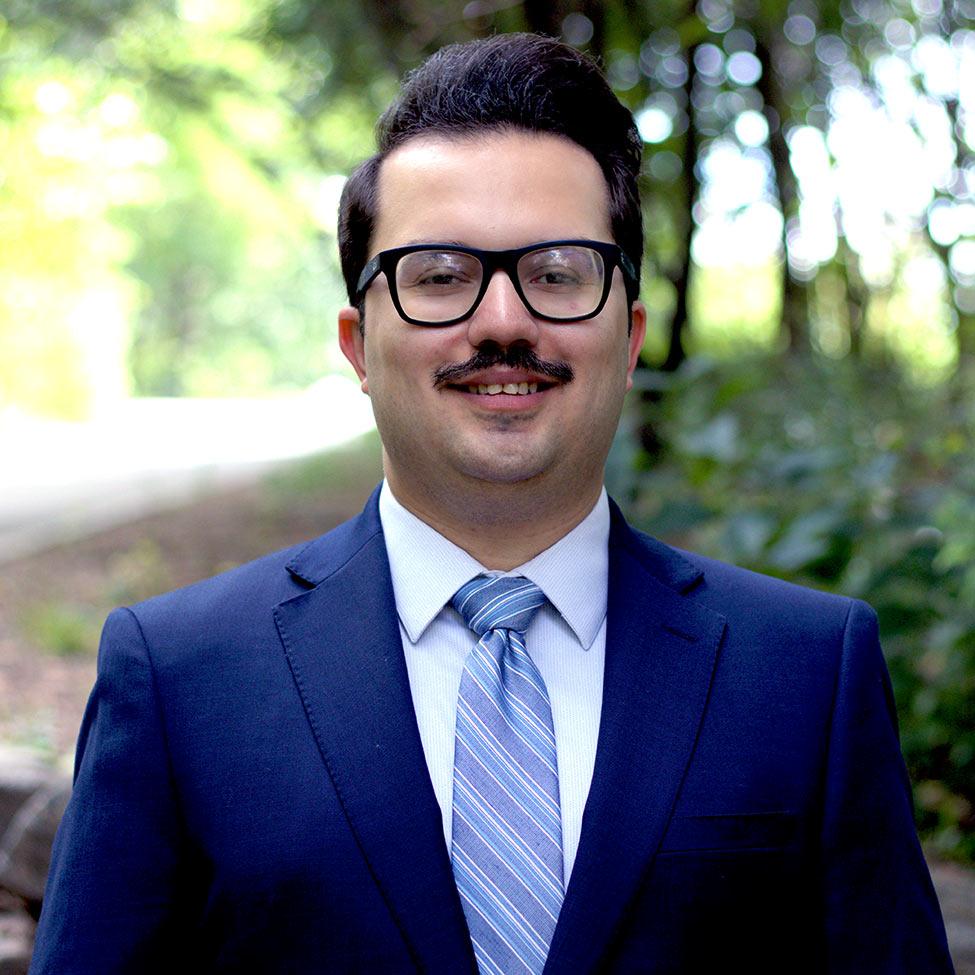
Joe Treviño
Class of 2015
Master of Science in Forensic Science
Joe Treviño is a criminalist with the New York City Police Department with a decade of experience in forensic intelligence, crime scene and medicolegal death investigation, and working in a law enforcement environment, in addition to pursuing a doctorate in forensic science at Oklahoma State University.
This past July, Treviño was selected from a competitive group of applicants as a 2023 National Institute of Justice (NIJ) Law Enforcement Advancing Data and Science (LEADS) Scholar, through which he will conduct research and apply evidence-based practices to criminal justice.
How is this meaningful to you and what do you hope to achieve as part of this program?
This program represents the culmination of my skills and experiences as well as a look into the future. My selection is the type of milestone I always thought people with more experience than I received, but someone saw the spark and potential in me. I am extremely excited to meet like-minded individuals and researchers with whom I can exchange ideas, form friendships, and collaborate.
How did you become interested in your work and get started in your career?
As a child, I would marathon-watch the early true crime shows with my mom (I was hooked on Forensic Files) and wanted to be a forensic chemist, so I went on to pursue a bachelor’s in forensic chemistry at Sam Houston State University in my home state of Texas. Upon graduation, I didn’t feel that I was ready to enter the job market, so I enrolled in the Master of Science in Forensic Science at Pace, returning home for my required internship as a death investigations intern at the Bexar County Medical Examiner’s Office in San Antonio. After receiving my master’s degree, I applied to laboratory and field investigations jobs, and started my career at the Garland Police Department, also in Texas, as a forensic investigator.
I was very much drawn to the flexibility of the Master of Science in Forensic Science program at Pace. The networking and career opportunities in the New York City area were also an attraction, and I felt that being in this location would be a contributing factor to my success.
What attracted you to pursue the master’s degree at Pace?
At the time, forensic science programs were going through a bit of a transformation and the big question was whether you chose a program that had specializations and tracks or one that was more customizable. I was very much drawn to the flexibility of the program at Pace. The networking and career opportunities in the New York City area were also an attraction, and I felt that being in this location would be a contributing factor to my success.
How were Dyson faculty or other members of the Pace community instrumental in your personal and/or professional journey?
Professor Peter Pizzola, PhD, was instrumental in establishing our sense of purpose and service to the public, which is hard to teach and easy to overlook, so I appreciate being guided through that process through his lectures and experiences. Professor Zhaohua Dai, PhD, the director of the forensic science program, was also an important mentor to me; he maintained contact after I graduated and invited me back as a guest lecturer, which began my path in academia and as an adjunct faculty in the program. I am tremendously grateful to both of them.
What challenges have you faced that you overcame and are proud of, and can share?
One of the first barriers I faced was financial. As a first-generation, Hispanic American student, my hope for an education was in scholarships and grants. Thanks to my mom’s unwavering support and relentless stewardship while I was in school, I received a full academic scholarship to any college of my choosing through the Gates Millennium Scholarship. College was an uneasy battle, with the hopes and dreams of my family and the burden of not being allowed to fail. I had stumbles, as any student would, but I recovered quickly.
What advice would you give to our students, as they navigate their college life?
Society already puts so much pressure on you to figure out your life. Don’t increase it by being hard on yourself. You are allowed to have no answers by the time you finish school. You are allowed to figure it out later. You are allowed to fail. You are allowed to struggle. You are allowed to be you. If you are concerned with not knowing something well enough or need help with a subject, reach out to your professors or advisors.
